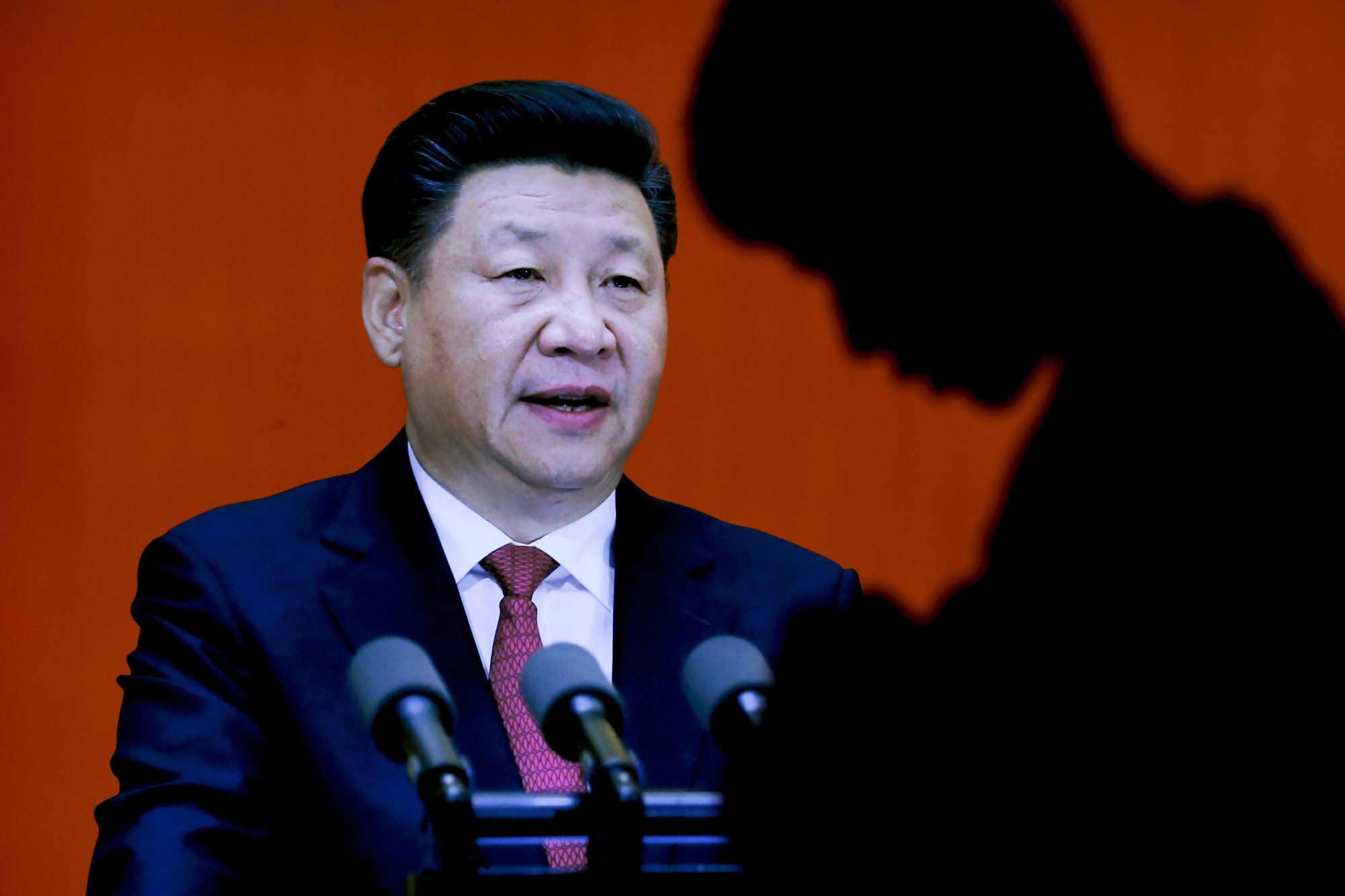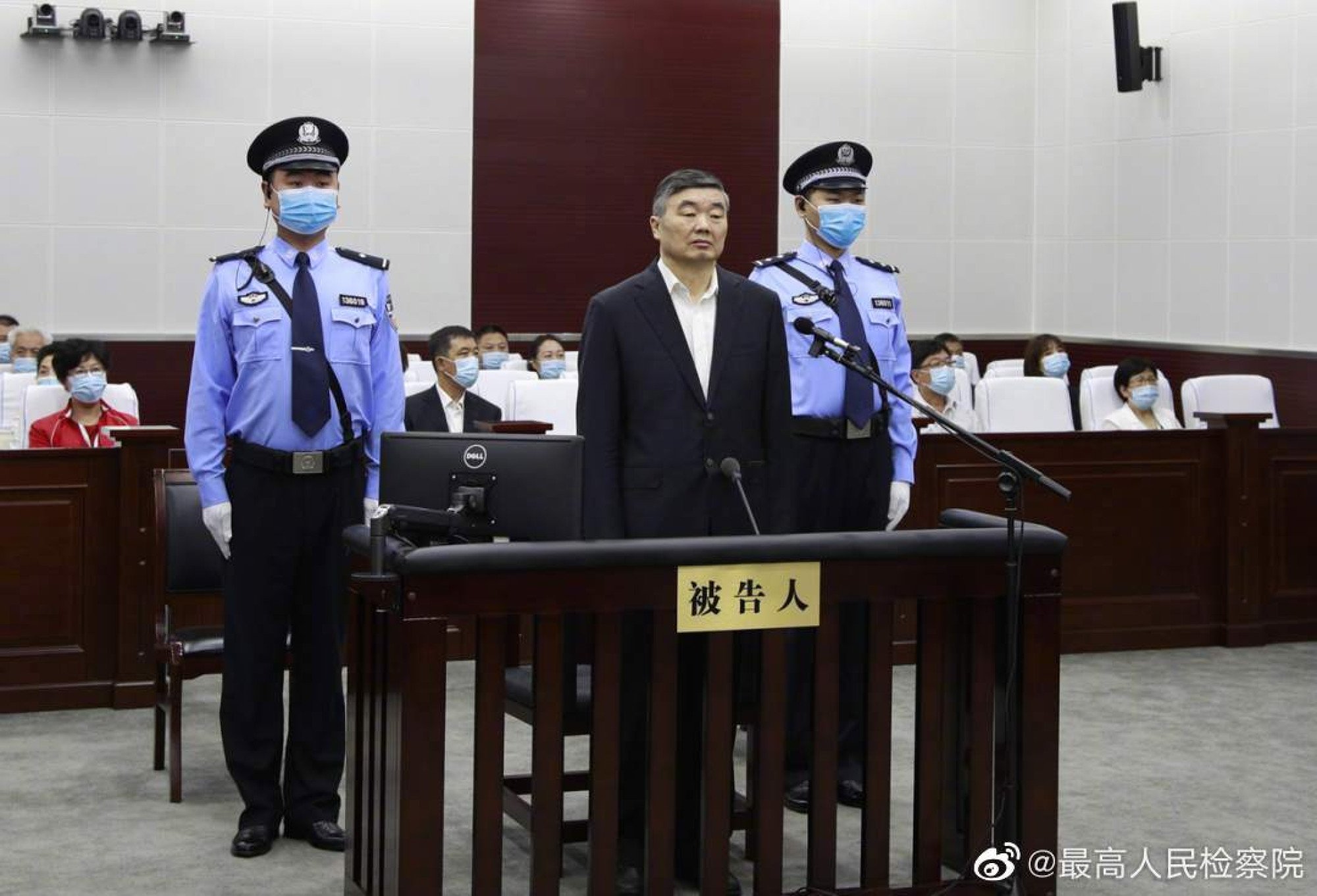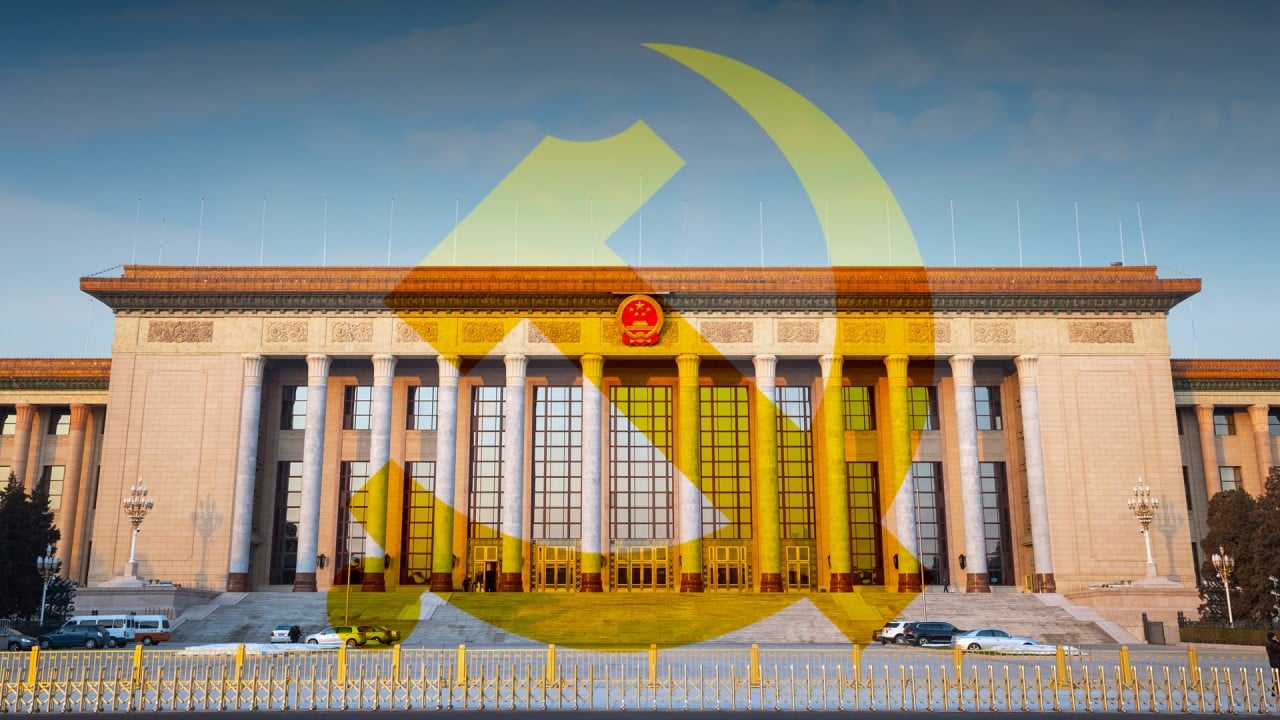
TV parades of corrupt officials snared in Xi Jinping’s anti-graft campaign raise more questions than answers
- Documentaries by the Communist Party’s feared Central Commission for Discipline Inspection featuring officials confessing their misdeeds are a hit with the public
- But focusing on people like Sun Lijun or Hu Huaibang in isolation, without shining light on those around them, belies the claim that no stone is being left unturned
The unprecedented and relentless drive, launched soon after Xi became China’s top leader in late 2012, has not only helped him tame his political opponents and consolidate his power rapidly but also won him widespread popular support.
Since 2016, the CCDI, China’s most feared agency, known for its secretive and often extrajudicial approach, has started to air a multi-episode documentary every year to shed light on its operations. These tend to feature a parade of a select group of corrupt senior and low-ranking officials confessing their misdeeds and expressing remorse on prime time national television. For maximum impact, the airing of the documentary is timed to coincide with the CCDI’s annual meeting, usually set for early January.
The show has become an instant hit with the public as the footage brings to life the shocking and brazen scale of official corruption. As a narrator details how the corrupt elite abused their power and accumulated their enormous wealth, often spanning decades, images of high-end watches, expensive wines, piles of cash, and luxury villas and condos are displayed.
This year’s five-episode documentary, titled Zero Tolerance, which aired daily from January 15 to January 19, attracted even more interest than usual as it provided details for the first time on a few of the country’s most intriguing corruption cases of the past two years.

As expected, the CCDI’s annual meeting opened on January 18 when Xi gave the keynote speech. He vowed that the leadership would not ease its crackdown on corruption, saying the fight was “still raging” and that it would be a long and arduous task because many officials did not care for its objective.
But if the documentary is aimed at augmenting the message that the anti-graft drive will reach all places, leave no stone unturned, and show no tolerance to any transgressor, it has raised more questions than answers.
Of all the officials paraded on television this year, the most eye-catching is Sun Lijun, a former deputy minister of public security and once one of the most powerful law enforcement officials in the country.
Xi’s new era is here, but historic party resolution is just the start
On April 19, 2020, the CCDI announced in a one-sentence statement that Sun had been placed under investigation and was suspected of grave violations of party discipline and laws. It was not until September 30, 2021, that the CCDI announced the results of its investigation, accusing Sun of undermining the unity of the party and political security by displaying “extremely inflated political ambition and very poor political integrity as well as amassing a large amount of bribes and living a luxurious lifestyle”.
Just two days before he was paraded on television, state media reported on January 13 that prosecutors had filed three charges against him: taking bribes, manipulating the stock market, and illegally possessing of firearms.
The documentary chronicled how Sun had started as a small-time trader in steel products but managed to become a deputy minister of public security at the age of 49 in 2018, making him one of the youngest top officials in law enforcement.
It focused on how Sun had masterminded the promotions of at least four allies to senior positions at the ministry of public security and top law enforcement jobs in Shanghai, Chongqing, Jiangsu, and Shanxi, all economically powerful provinces and municipalities. In exchange for his support, one ally alone paid Sun more than 90 million yuan (US$14 million) in cash and corporate shares.
The details about Sun’s corruption might be mind boggling but the documentary left out a crucial piece of the puzzle – he once served as secretary to Meng Jianzhu after the latter became the minister of public security in 2007. Sun’s career and influence grew fastest between 2012 and 2017 when Meng, a member of the party’s politburo, was the country’s highest-ranking official in charge of law and order.
In China’s political hierarchy, which values patronage the most, it is hard to imagine that Sun could wield so much power and influence without Meng’s knowledge and support. But as far as Sun’s case is involved, Meng’s name is nowhere to be found and there is no public indication that Meng is implicated.
If China’s leaders want to engage the international media, learn from Mao
Hu Huaibang, former chairman of China Development Bank, the country’s largest policy bank, was paraded on television confessing that he had breached his own bank’s policy and approved a credit line of US$4.8 billion to CEFC China Energy in exchange for tens of millions of yuan in bribes. In January 2021, Hu was jailed for life for taking a total of 85.5 million yuan in bribes from 2009 to 2019. But a CCDI investigator said in the documentary that Hu approved credit lines to “well-connected” businessmen to advance his own career, suggesting that Ye was politically connected.

After Ye’s downfall, media reports suggested that because of his surname Ye, he was long rumoured to be a grandson of Ye Jianying, one of the influential founders of the People’s Republic. Ye Jianming denied the link but rumours persisted. Other reports suggested that he came from an ordinary background but was later associated with an intelligence unit of the People’s Liberation Army.
On top of the US$4.8 billion from the China Development Bank, Ye also spent many more billions of US dollars to strike mega deals in Russia, Eastern Europe and Africa, with most of the funding believed to come from Chinese banks. What has happened to the other bankers who approved those loans which have become mostly irrecoverable?
Chinese leaders have repeatedly claimed to have found an effective formula to tackle official corruption, which is to combine strict governance with zero tolerance, known as “self reform” and “driving the blade inward and scraping the poison off the bones”.
The documentary of the misdeeds by Sun, Hu, and others has clearly shown that a lack of openness and transparency enabled them to amass fortunes spanning decades without being detected as well as allowing Ye from a dubious background to talk and bribe his way to getting his hands on billions of US dollars.
Wang Xiangwei is a former editor-in-chief of the South China Morning Post. He is now based in Beijing as editorial adviser to the paper


